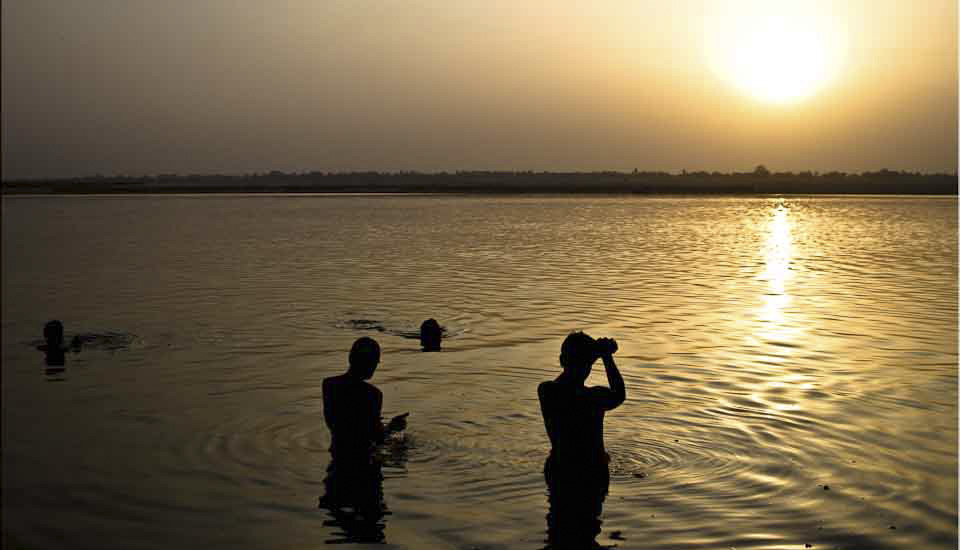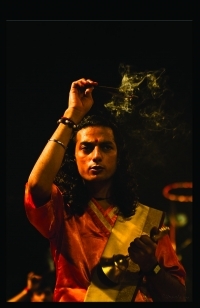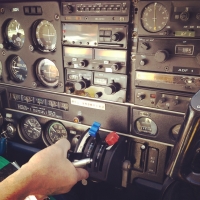.jpg)
Mozart Monument and Ephesos Museum
Vienna’s monument to Austrian composer Wolfgang Amadeus Mozart (1756–1791) in the Burggarten of the Hofburg Palace was shrouded in scaffolding for repairs when we visited.
Vienna.
City of Mozart. And waltzes.
And that other Strauss: Richard – known for his operas, and familiar to my generation thanks to his fanfare from Thus Spake Zarathustra that was used in Stanley Kubrick’s film 2001: A Space Odyssey. But when I think of Vienna, I always think of Billy Joel, or of Leonard Cohen’s melancholy three-quarter time dirge: Take This Waltz, based on the “Little Viennese Waltz”, written by Spanish poet Federico Garcia Lorca.
Viennese streets are full of history and tradition, and rich with the art of Baroque, Renaissance and contemporary architecture: large, gilded structures in metal, glass, stone and marble sitting majestically in public gardens and open plazas, or rising over narrow streets crowded with tourists on foot and in horse-drawn carriages. It is not all sublime, however: men in Mozart costumes spruik musical entertainments, and shops sell all manner of tacky souvenirs. Scaffolding and machinery also crowd the public spaces in an effort to prevent the ancient fountains, monuments, and facades from crumbling into the cobbled roadways.
Vienna is lines and curves and patterns and beauty – and also good coffee, fine chocolate, and rich pastry.
Vienna waits for you …
.jpg)
Palais Auersperg
It is probably fitting that the first stop in Vienna for my husband and myself, once our Danube canal boat tied up securely, was to the baroque Palais Auersperg – built between 1706 and 1710 – for a program of classical pieces from Wolfgang Amadeus Mozart and Johann Strauss.
.jpg)
Leading Lines and Subway Patterns
Early next morning found us in a spotless underground station, watching trains disappear into the tunnels.

“Opera WC”
Coin-operated toilets are a feature of many European cities; this one in the Viennese U-Bahn was bright, clean and quirky-looking.

Fountain – Wiener Hofoper/Vienna State Opera House
We emerged from the subway near the Neo-Renaissance-style Vienna State Opera House – built as the Vienna Court Opera between 1861 and 1869.

“Mozarts” on the Street
Men dressed as Mozart sell tickets for performances by the Vienna State Opera.

Richard Strauss
German composer Richard Georg Strauss (1864 – 1949) served as musical co-director of the Vienna State Opera (with Franz Schalk) from 1919 to 1924. His star in Vienna’s “Walk of Fame” is in the pavement outside the Opera House.

The Danubius Fountain
Everywhere you look in downtown Vienna, there are works of beauty and antiquity. The Baroque Danubius Fountain (also called the Albrecht Fountain), in front of the Albertina Museum, was carved from white Carrera marble and unveiled in 1869.

Palmenhaus and Schmetterlinghaus
At the edge of the Burggarten – the castle garden – delicate Art Nouveau glass and metal buildings house an upmarket restaurant and a collection of tropical plants and butterflies.

Emperor Franz Josef I (1830 – 1916)
A statue of the long-ruling Emperor of the Austro-Hungarian Monarchy stands in the castle gardens.

Mozart in Scaffolding
The much more popular Mozart monument in the castle gardens was almost completely obscured by scaffolding. By Austrian sculptor Viktor Oskar Tilgner (1844 – 1896), the work was finished just before his death.

Through the Fence
Statues are everywhere in Vienna. Looking into the Heldenplatz (Heroes’ Place), we can see the 1865 bronze equestrian statue …

Prince Eugene of Savoy
… of the landowner Eugene of Savoy – also known as Prince Eugene.

Vienna City Hall Clock Tower
Delicate gothic spires rise up from the Rathaus, nestled in its gardens.

“Swiss Gate”
A lovely archway leads into the Alte Burg or Old Fortress.

“Power at Sea” Fountain
The Hofburg Imperial Palace is a treasure trove of sculpture.

Equestrian Statue of the Holy Roman Emperor Joseph II
Holy Roman Emperor from 1765 to 1790 and ruler of the Habsburg Empire from 1780 to 1790, Joseph II, eldest son of Habsburg Empress Maria Theresa and brother of Marie Antoinette, was considered one of the “Enlightened Despots” of the 18th century.

Chariots and Horses
The roof of the Imperial Palace is adorned with marble horse-drawn chariots …

Spanische Hofreitschule
… while the horses of the Spanish Riding School …

Lipizzana Horses
… live and train below.

St. Michael’s Wing – Hofburg Imperial Palace

St. Michael’s Wing
Walking out into Michaelerplatz gives an imposing view back to the St. Michael’s Wing of the Hofburg Imperial Palace.

Vienna Streets
Back in the old city streets, the horses are for tourists.

Religious Iconography
Many of the marble sculptures in the city are under netting to protect them from pigeons.

Holy Trinity Column
The ornate Baroque Pestsäule (Plague Column) was erected in 1693 as a memorial to the Great Plague of Vienna (1679).

St. Stephen’s Cathedral
At the end of a street, the spire of the Gothic Stephansdom stands tall.

Haas Haus Reflections
Not all the buildings in the city centre are ancient: finished in 1990, the Romanesque rounded glass surfaces of the contemporary Haas Haus reflect the Medieval architecture surrounding it.

Mostly Mozart Souvenirs
Quality Austrian chocolates and souvenirs are readily available …

Mozart
… as are all kinds of trinkets.

Plaza in the Sun
After a morning of exploring the parks, architecture, statues, and cobbled streets, we find a place for coffee and cake to relax briefly …

Heiliger Franz von Assisi – Jubiläumskirche
… before catching an underground train and returning to the Danube and our boat.
Vienna waits …
And exceeds any preconceptions or expectations.
Until next time,


































.png)


That was a lovely tour through the history, art, and architecture.
Many thanks for joining us, Sidran!
[…] exploring cities on our own (eg: Passau; Regensburg; Melk; Kelheim to Weltenburg; Vienna; Budapest Market; and Buda Castle Hill). Of course, ocean cruising – even in a […]